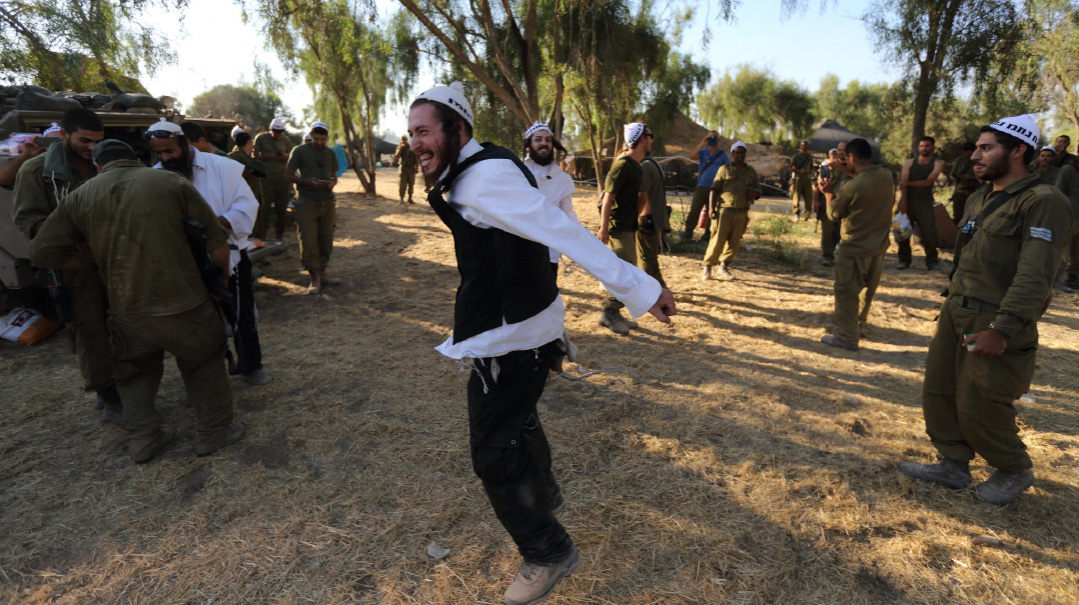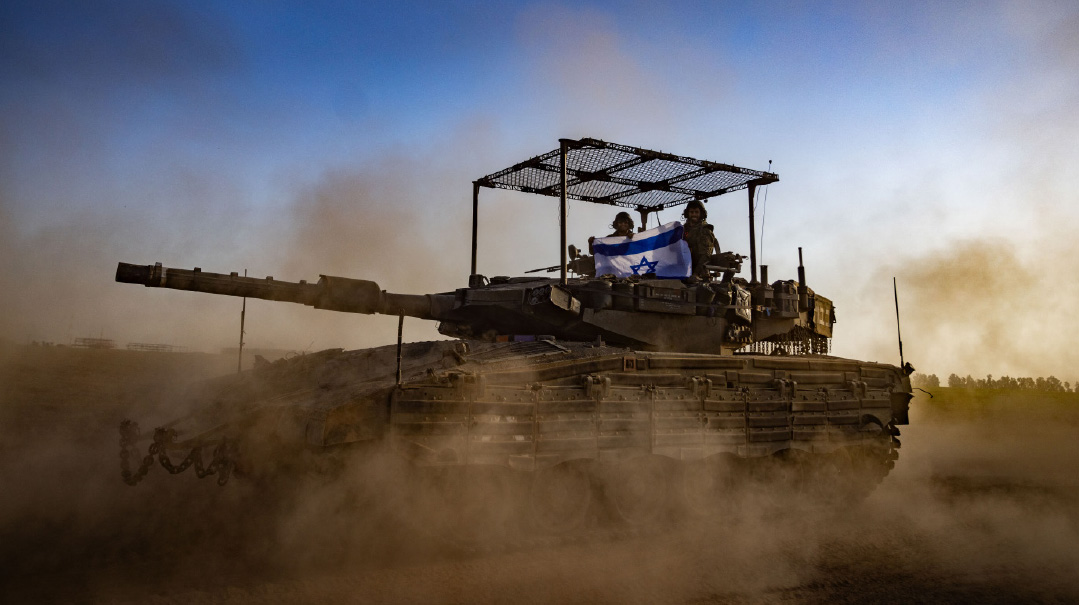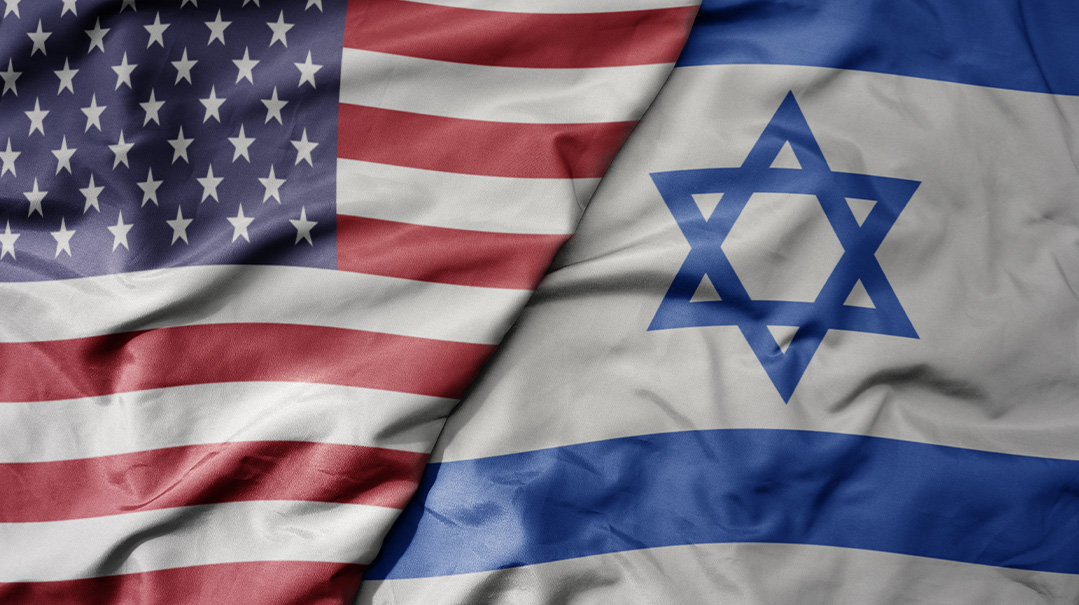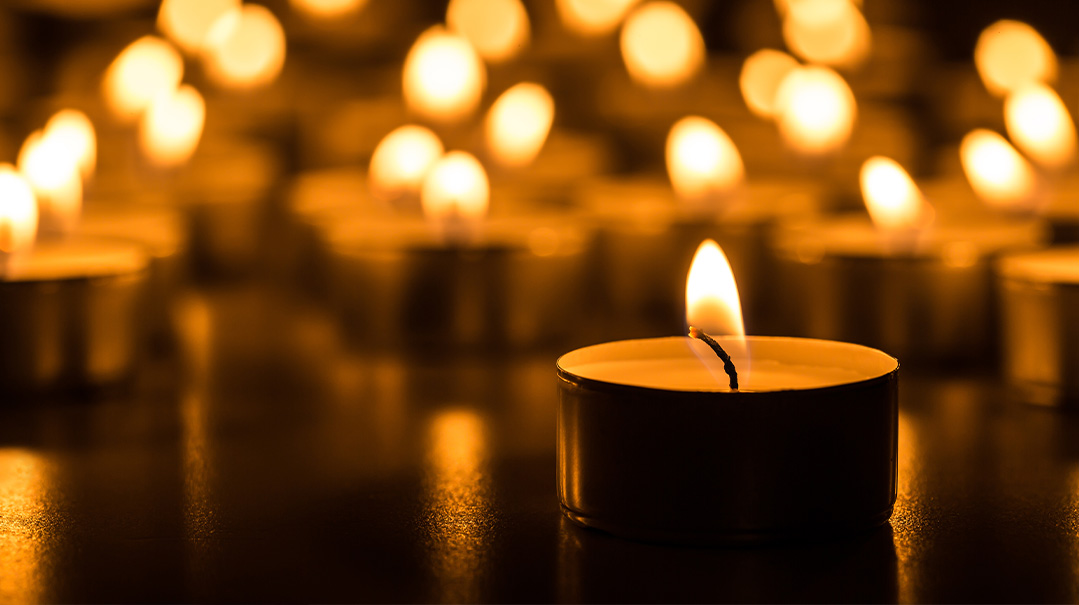America’s Humiliation

The biggest blow of all wrought by the humiliating withdrawal was to Americans’ self-image
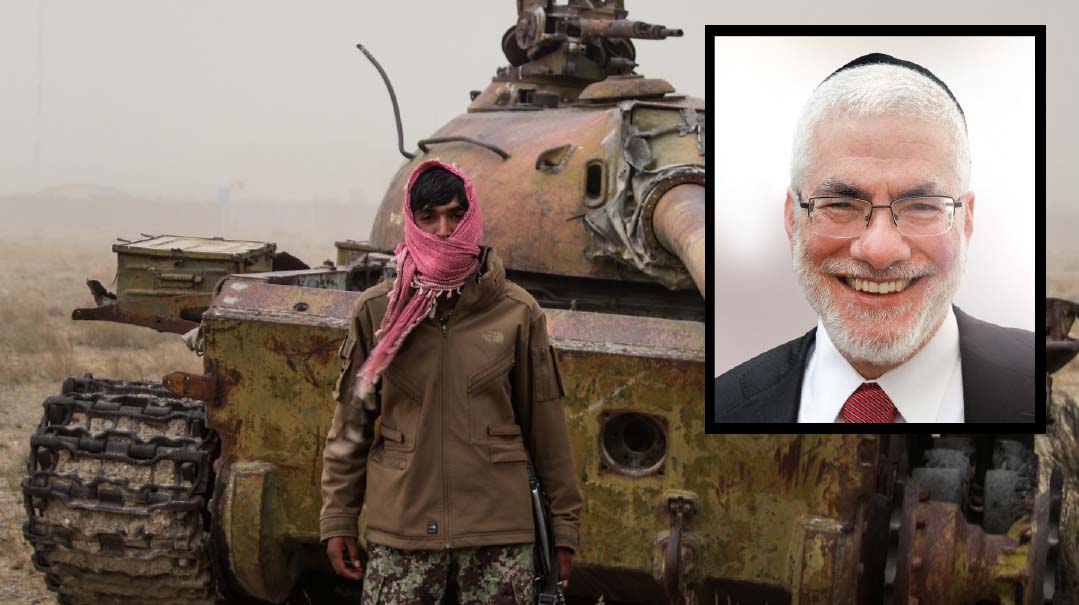
Over the years, I have noticed a pattern: The world suddenly seems far more dangerous and unstable as we head into Tishrei. The Second Intifada broke out immediately before Rosh Hashanah of 2000, and I can still remember repeatedly looking out my succah window that year half expecting to see armed Palestinians coming over the hill. One year later, in the last week of Elul, terrorists brought down the Twin Towers and hit the Pentagon, claiming nearly 3,000 American lives.
And over the past two weeks, we may well have been watching the demise of the United States as the world’s preeminent power. At the very least, America’s world stature has been severely diminished — likely irreparably. Many of us find ourselves more profoundly ashamed of our government than we can ever remember. The late Bernard Lewis’s description of America — “harmless as an enemy and treacherous as a friend” — has taken on new significance.
When the Twin Towers crumbled, all Americans felt violated. But one thing we knew for sure: The United States would respond. By October, US and NATO forces had launched an attack on the Taliban government of Afghanistan, which had provided a haven and state support for al-Qaeda. And within two months, the Taliban had been removed from power.
Now, 20 years later, the Taliban has triumphantly returned to power, decked out in the latest American military gear, taken after the US abandoned Bagram Air Force base in the middle of the night, without consulting either its Afghani or NATO allies. And this time the one thing we know for sure: No matter how many American citizens, green card holders, and those who worked with the allied forces (numbering in the hundreds of thousands) the Taliban executes or holds for ransom, perhaps using the lists of names we helpfully supplied them — there will be no US military response.
Andy McCarthy, the lead prosecutor in the first Twin Tower bombing case, reminds us that the American mission in Afghanistan was an anti-terrorism mission — what former president Obama once called the “good war.” Al-Qaeda had in large part been able to attack America because it enjoyed a safe haven and state support. Our intervention in Afghanistan removed that haven. In the 20 years since, there has not been another remotely comparable terrorist attack on the United States.
The continued US presence since October 2001 helped prevent the Taliban’s return. With even a minimum support force of 2,500 American troops (a small fraction of the 100,000 troops maintained in Europe and South Korea for 70 years) providing logistical, intelligence, and close air support, the Afghani army held the Taliban at bay, even if it could not completely eradicate them. American suffered 66 combat deaths since 2014, with none since February 2020, until the deaths of 13 Marines killed by a suicide bomber in the last stage of the chaotic American withdrawal.
Now, the return of al-Qaeda, whose leadership is bound to that of the Taliban by numerous family ties, is almost certain. Leon Panetta, President Obama’s CIA director and secretary of defense, opined, “There is no question that they [ the Taliban] will provide a safe haven for al-Qaeda and for ISIS and for other terrorists to... use Afghanistan as a base for attacking not just the United States, but other countries as well.” After capturing Kabul, the Taliban placed the Haqqani network, an al-Qaeda-affiliated jihadist group, whose leader has a $5 million dollar bounty on his head from the US government, in charge of all the access roads to the Kabul airport.
In its hasty flight, the American military left behind at Bagram Air Base and elsewhere, an estimated $70 billion in advanced military equipment, including 174 planes and helicopters, 22,174 Humvees, 64,363 top-of-the line machine guns, 634 armored security vehicles, 169 armored personnel carriers, and 16,035 night goggles, the absence of which formerly deprived the Taliban of the ability to fight at night. Not to mention 7,000 scanners that the Taliban can use to identify those who worked with America. The value of that equipment roughly equals 80 percent of the military aid America has provided Israel over 70 years, noted military historian Victor Davis Hanson. The Pentagon has yet to offer an explanation as to why the equipment was left behind.
Afghanistan will soon become a bazaar for selling advanced weaponry to terrorist and jihadist groups all over the world. The spirits of those groups were rejuvenated overnight by the hapless US retreat. America, in Osama bin Laden’s terminology, no longer looks like the “strong horse.”
The leaders of China, Russia, North Korea, and Iran took note of the American humiliation. A Chinese government newspaper drew the explicit lesson for the citizens of Taiwan: Don’t put too much faith in the US if we decide to invade.
America’s closest NATO allies, who had originally joined US forces in Afghanistan at the Washington’s behest, were left fuming by the nature of the withdrawal. They were neither consulted in advance nor able to reach President Biden, even after the fact. Both British and French forces were ordered to stand down by American commanders, when they sought to expand the security perimeter around the Kabul airport to rescue their nationals and allies.
As the AEI’s Marc Thiessen put it, “Biden not only betrayed our citizens and Afghan allies but also forced NATO allies to betray theirs as well.” German chancellor Angela Merkel’s designated successor, Armin Laschet, called Biden’s handling of Afghanistan “the biggest debacle NATO has seen since its foundation.” Former British prime minister Tony Blair was even more blunt: He publicly called Biden’s decision-making “imbecilic,” and his callous disregard for the fate of the Afghanistan people “tragic,” “dangerous,” and “unnecessary.”
But the biggest blow of all wrought by the humiliating withdrawal was to Americans’ self-image. First came the removal of our military while hundreds of citizens, much larger numbers of holders of green cards, granting them permanent residency, and likely more than 100,000 people who worked with the American forces and their families, languished without any means of getting out. It was left to groups of former servicemen in Afghanistan and at least one Chabad shaliach to try to get them out, at great risk to their own lives.
The Biden administration is apparently relying on the good will of the Taliban. Dependence on the kindness of strangers is never a good idea. But the Taliban? As news of the fates of those left behind filters out, they will constitute a permanent stain on the American conscience.
The US did not intervene militarily in Afghanistan to rescue Afghan girls and women from the clutches of the Taliban and their version of Islam, including forced child brides, and girls and women being denied access to education and health care. But doing so was surely one of the salutary benefits of the American presence. From 2002 to 2018, female life expectancy increased eight years, the average years of women’s schooling increased by four years, and infant mortality dropped by half.
All that is likely to revert to the status quo ante under the Taliban, whose theology is not negotiable. Caitlin Flanagan, in the Atlantic, was not the only one to note how American feminist progressives, ever sensitive to every nuance of their own “oppression,” were so little moved by the likely return of Afghani women to oppression magnitudes worse than they have ever known.
At no time of the year do we feel Hashem’s embracing love and protection as on Succos. The impermanent nature of the succah recalls the howling, desolate desert into which we followed Hashem, and how even in those inhospitable surroundings we were fully protected by the Clouds of Glory.
Perhaps we should thank President Biden for enhancing our Succos by taking away any sense of false security and reminding us of how much we depend on Hashem alone for our protection.
Chag samei'ach.
Originally featured in Mishpacha, Issue 878. Yonoson Rosenblum may be contacted directly at rosenblum@mishpacha.com
Oops! We could not locate your form.
